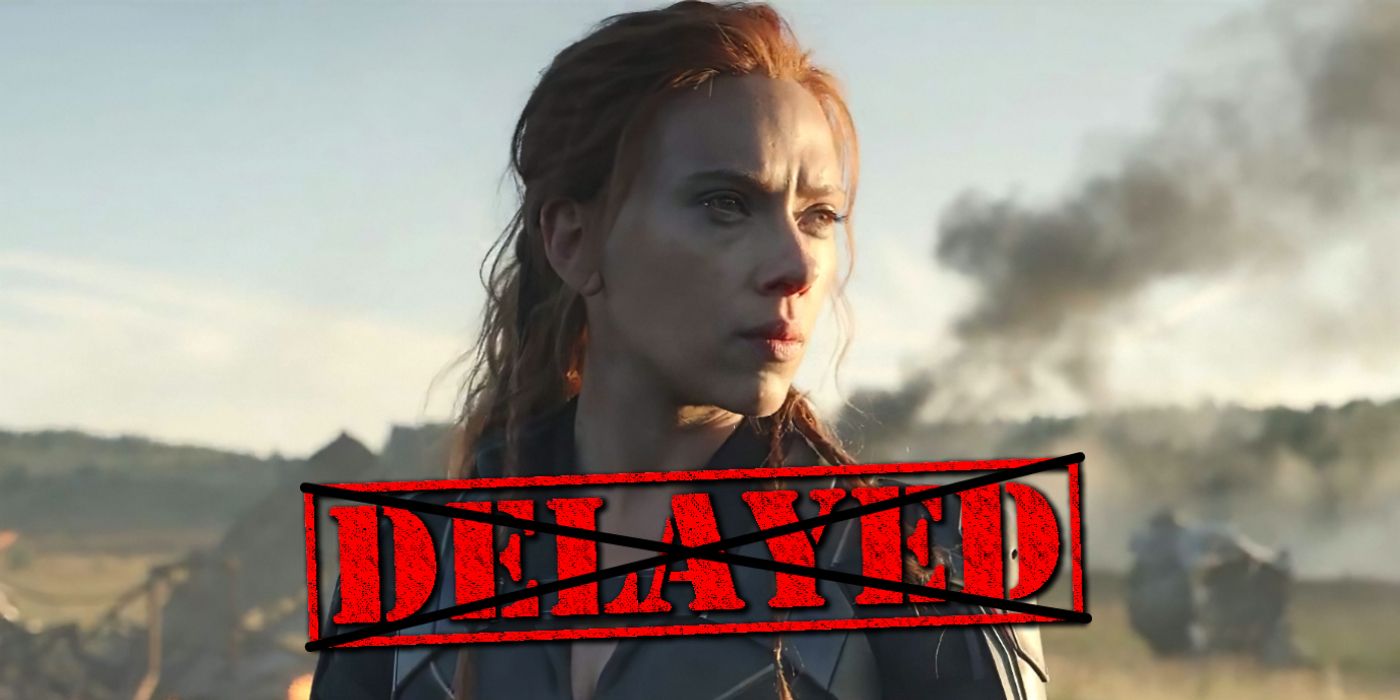Marvel Studios will struggle to delay their film upcoming releases such as Black Widow because of coronavirus. The coronavirus crisis is certain to have an impact on every aspect of modern life. Governments are putting together plans for a potential pandemic, and understandably they're preparing for the worst. The hope is that the measures they take will prevent that from happening, and that this will go down as a near-miss that could have been so much worse if not for the right policy choices.
Part of that involves attempting to control the spread of the disease by encouraging people to self-isolate if they believe they may have coronavirus. Large crowds are particularly high-risk, because there's a high chance at least one person in the crowd will be contagious. Disney canceled a major Disney+ event in London, and in China theaters are shutting down by the thousands. It's likely other countries will follow suit in order to slow the spread of the virus. As a result, studios are beginning to react by adjusting the release dates for what would have been summer tentpoles; the first to do so was MGM, who moved No Time To Die by a full seven months. MGM may have been the first studio to do this, but they're almost certainly not going to be the last.
Given this context, attention is naturally turning to other summer blockbusters, notably Black Widow. The 24th film in the hugely successful Marvel Cinematic Universe, Black Widow is the high-profile launch of Phase 4. It's currently due to release in May, which would mean box office takings are certain to be affected by coronavirus. But, unlike MGM, Marvel Studios is going to struggle to move this film.
The Science Behind MGM's No Time To Die Decision
MGM has clearly been considering moving No Time To Die for some time, especially as the impact of coronavirus on the James Bond film increased. As early as mid-February, the studio canceled No Time To Die's Chinese premiere, a decision that showed remarkable foresight given how the crisis has developed. They subsequently pulled the entire Chinese marketing campaign, a first hint they'd be moving the film's release date. Although MGM didn't make an official statement, reports suggested they'd made their decision "because of uncertainty surrounding the evolution of the epidemic." In other words, MGM isn't just reacting in a somewhat arbitrary manner; there is a scientific basis to their actions.
Experts in the study of epidemics are advising governments how to control the spread of coronavirus as much as possible. In the Northern hemisphere, governments aim to ensure coronavirus peaks in the summer, when hospital beds are traditionally in less demand. Indeed, that assessment was made quite openly by the British government when they went public about their coronavirus action plan, literally a day before MGM chose to push No Time To Die's release back to November. Assuming the government strategies are successful, this will be when the worst of coronavirus is over, and hopefully people will feel like going to the cinema just to celebrate they've gotten through it, so No Time To Die's delay makes sense.
Marvel Lacks MGM's Flexibility
James Bond is one of the world's best known film franchises, but MGM's decision reveals he has something Marvel doesn't: flexibility. In the case of No Time To Die, MGM just had to move one film to a different release window, with no major repercussion on their slate. The MCU, however, is a shared cinematic universe; adjusting one release date potentially has major consequences for years. Let's assume Marvel decided to follow MGM's lead, and shifted Black Widow to the 2020 slot currently occupied by Eternals. The studio would then need to decide what to do with Eternals; do they just push every film back one, or do they scramble things up even more, reluctant to lose Shang-Chi and the Legend of the Ten Rings' opportune release around Chinese New Year? With four MCU movies releasing in 2021, it becomes much trickier to juggle.
Making matters worse, over the next year Marvel is expanding the MCU to incorporate a range of Disney+ TV shows. Traditionally, Marvel TV series have had no real impact on the MCU; even the stars of Agents of SHIELD have openly complained Marvel movies appear to ignore them. But Disney+ is a major corporate priority for the House of Mouse, and as a result Marvel intend these new shows to link directly into the movies. Both Loki and WandaVision reportedly tie into Doctor Strange in the Multiverse of Madness, for instance, while there's been some speculation there are connections between Black Widow and The Falcon and the Winter Soldier. Consequently, if Marvel adjust a film's release date, it potentially disrupts their Disney+ rollout as well.
Disney can't afford disruption to Marvel's Disney+ slate. The new streaming service had a strong launch in North America, courtesy of The Mandalorian, but right now it seems overly dependent on Lucasfilm. There's some evidence Disney+ has been struggling to match The Mandalorian's success, with no other shows landing near the top 100 series by US audience demand in December 2019. Anecdotal evidence suggests Disney+ has actually been losing subscribers now The Mandalorian is finished, just as people register with Netflix for the latest season of Stranger Things and then unsubscribe after bingeing it. It's safe to assume The Clone Wars has helped ameliorate the problem, but Disney desperately need some top-tier, non-Lucasfilm content; they can't afford to be entirely dependent on Star Wars. They need these Marvel shows.
All this means Marvel will struggle to reschedule their movies around coronavirus, especially given the situation is disturbingly fluid; MGM's seven-month delay of No Time To Die is based on the assumption government strategies in the Northern hemisphere work. For now, Disney is sticking to Black Widow's May launch, choosing to take the hit to their box office and continue transforming the MCU into a truly transmedia enterprise, but the situation is rapidly changing across the globe. Sooner or later, though, there will inevitably be an impact; it's only a matter of time before some key locations become unavailable for filming, meaning principal photography of an MCU film is delayed. It will be fascinating to see how Marvel handle that eventuality.









